The COVID-19 pandemic brought about a drastic cultural shift in the way people think about healthcare, with an increased demand for in-home health options. In 2020, over 29 million patients used remote patient monitoring services and tools. Growth in remote patient monitoring peaked in April 2020, with the overall usage of office visits and outpatient care being 78 times higher than in February 2020. As more individuals seek to avoid in-person healthcare visits, whether out of comfort or necessity, the demand for in-home health options has skyrocketed. This trend is expected to continue, with an estimated $250 billion of US healthcare spend that could be shifted towards virtual or virtually enabled care.
To gain insight on these recent trends, Casana’s clinical studies team conducted surveys, revealing a positive attitude towards remote monitoring tools, including our Heart Seat. This shift in healthcare presents an exciting opportunity for patients to take control of their health while providing more frequent data for both providers and caregivers.
Increased Desire for Remote Patient Monitoring
Remote patient monitoring (RPM), also referred to as telehealth or telemedicine, is a technology-enabled healthcare service that allows healthcare providers to monitor patients’ health remotely, outside of traditional clinical settings.
In an effort to uncover additional insights around the increased preference of remote patient monitoring, Casana conducts going internal clinical studies. The setting in which these surveys are conducted varies, including product utilization in participants’ homes, in Casana’s Smart Integrated Technologies (SIT) lab, and virtually. In a combination of four clinical studies with nearly 500 participants, a significant percentage (88%) of contributors expressed their preference for monitoring their health from home rather than visiting a doctor’s office or medical facility.
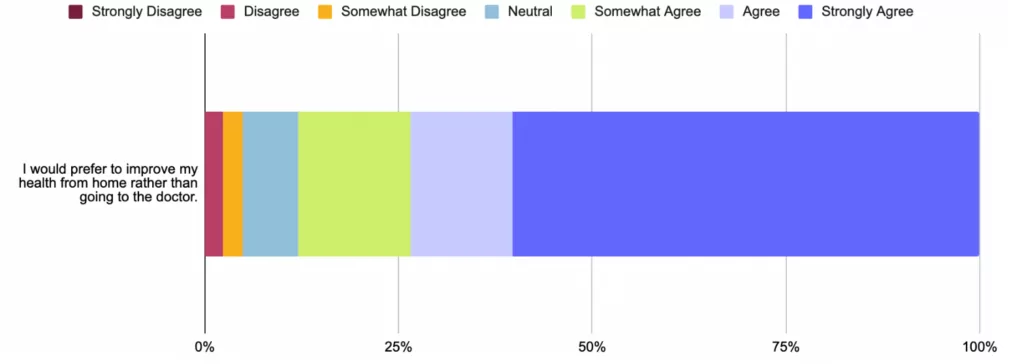
With RPM, patients use mobile devices or other types of technology to transmit data including vital signs, symptoms, medication adherence, and other health information. Depending on the medical condition, RPM often allows for improved quality of care, convenience, and a sense of ownership of your health.
The growing number of people with chronic conditions, such as diabetes, heart disease, and hypertension requires increased monitoring. RPM can help these patients manage and treat their conditions more effectively by allowing healthcare providers to monitor their health status remotely and intervene earlier, if necessary. Oftentimes, certain health parameters are more prominent leading indicators for chronic health conditions than others. Casana’s studies found that 67% of respondents consider blood pressure as one of the most important health parameters to monitor at home, with heart rate and cardiac output not far behind.
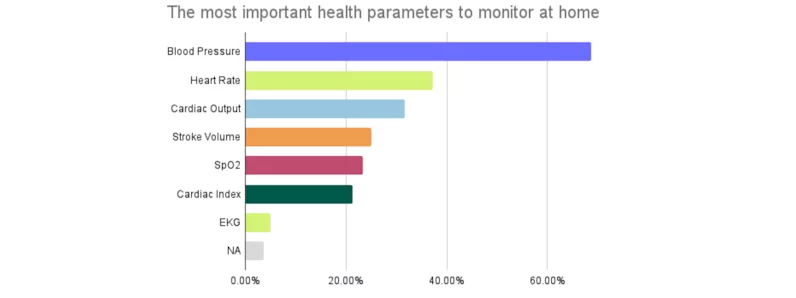
Actionable Data Is Helping to Improve Outcomes
In the clinical studies in which participants used Casana’s Heart Seat, 91% of respondents stated they would be comfortable with their health information being transmitted on the internet as long as that information was encrypted.
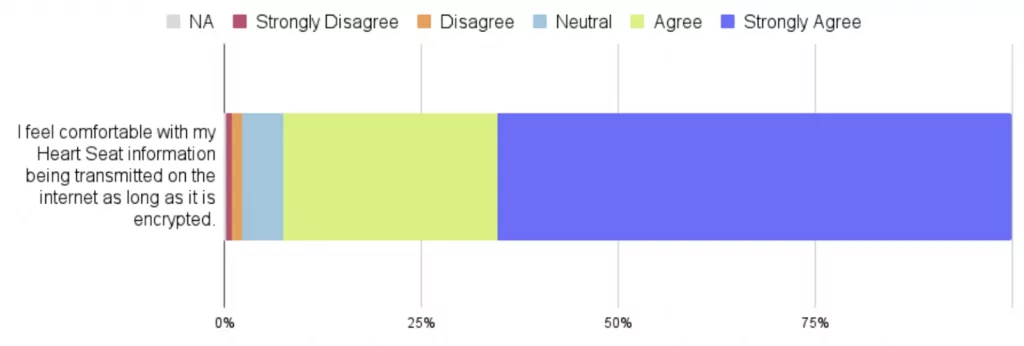
Remote patient monitoring provides the opportunity to collect data from patients on a daily basis, in comparison to the few doctors’ visits patients typically make in a year. This increased amount of data can help patients and doctors identify trends and make more informed decisions about their health, including medication or treatment plan efficacy. While the increased data output is beneficial, it is crucial for medical devices to follow proper procedures in protecting and encrypting sensitive data. Regulatory bodies, such as the Food and Drug Administration (FDA), require medical devices to practice proper cybersecurity and safety procedures before entering the market to ensure patient data is safeguarded.
The Heart Seat
As technology improves, so do your options. Many medical devices, whether they are blood pressure cuffs, smartwatches, or toilet seats, have improved capabilities that allow for greater access and more quality data.
Through Casana’s clinical surveys, 89% of respondents expressed that they would trust in-home monitoring devices prescribed by their doctor.
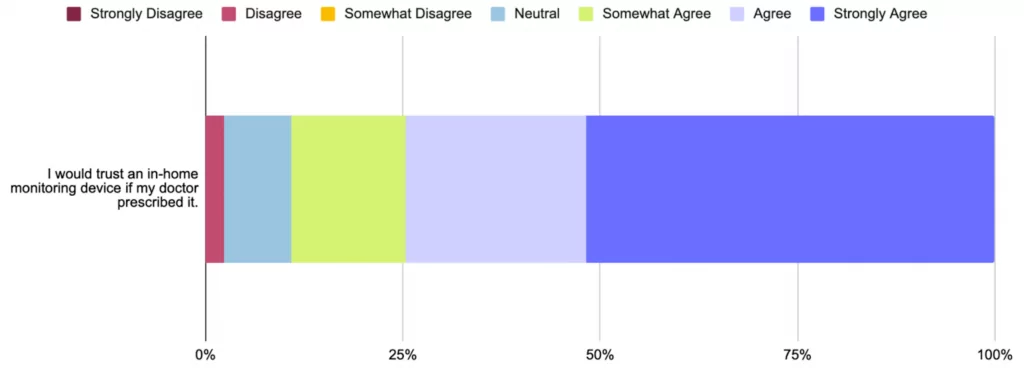
In our user experience study, in which individuals used our Heart Seat, 87% of research participants preferred a toilet-based monitoring device over a traditional blood pressure cuff and pulse oximeter.
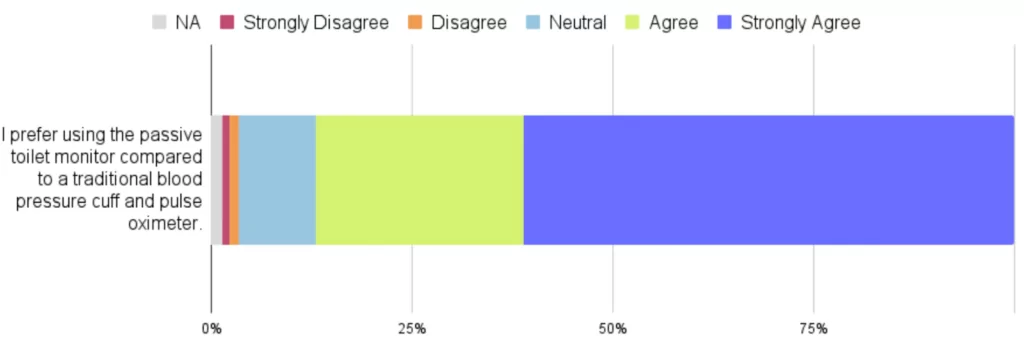
The Heart Seat will be the only FDA cleared toilet seat focused on heart health monitoring, improving remote patient monitoring by effortlessly capturing actionable intelligence on chronic conditions. As the seat aims to increase adherence through the simplicity of sitting on a toilet, clinicians claim the Heart Seat will change the way the healthcare industry does business
In addition to user acceptance, over 90% of our study participants stated that they would also recommend the Heart Seat to friends or family members.
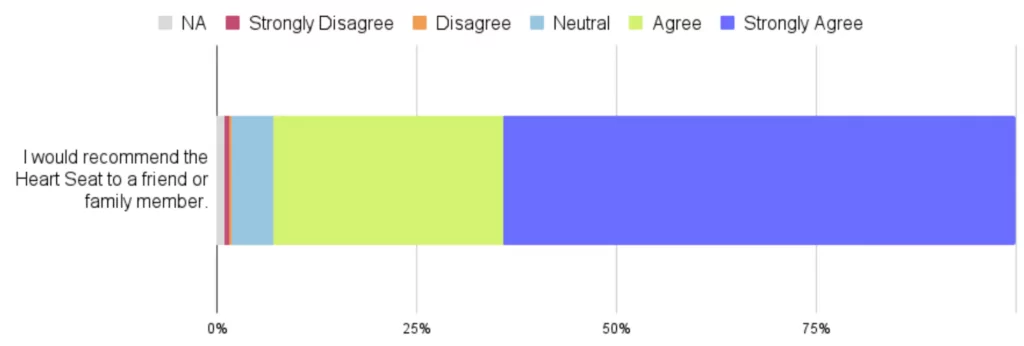
Interested in learning more about Casana’s research, or even being a part of our studies? Visit https://casanacare.com/partner-research/ for more information.
Disclaimer: All of the material provided above is for informational purposes only. This content is not intended to be a substitute for professional medical advice, diagnosis, or treatment. Always seek the advice of your physician or other qualified health providers with any questions you may have regarding a medical condition. Never disregard professional medical advice or delay in seeking it because of something you have read on this website. Casana does not endorse any of the products or services mentioned in this post.
Recommended insights
Capital, Courage, and Creating Impact: The CEO’s Winning Formula
I’m a true believer that success can be achieved in many ways. However, if there’s one takeaway for success in this article it should be this: you have to be resourceful and unafraid to try new...Read More
Casana Announces the Launch of Their Smart Integrated Technologies Lab (The SIT Lab) in Rochester, NY; Led by Nicholas Conn, PhD and Dave Borkholder, PhD
Rochester SIT Lab investigates Casana’s new effortless noninvasive in-home health monitoring technologies
A startup that monitors heart health with a toilet seat joins Innovators’ Network
Heart Health Intelligence is the latest member of the American Heart Association’s Center for Health Technology & Innovation Innovators’ Network
